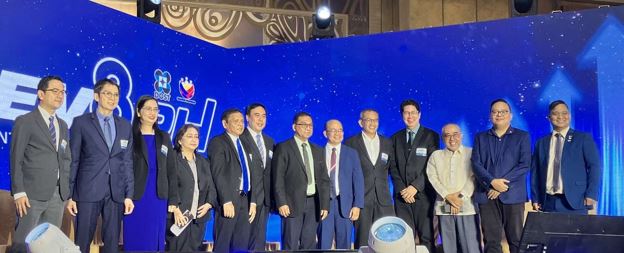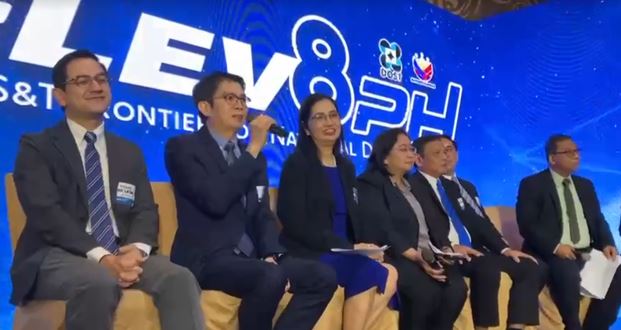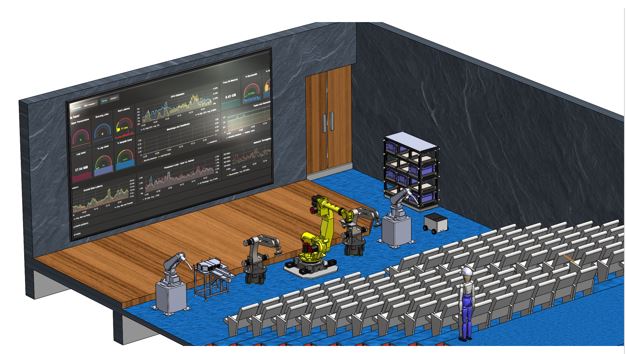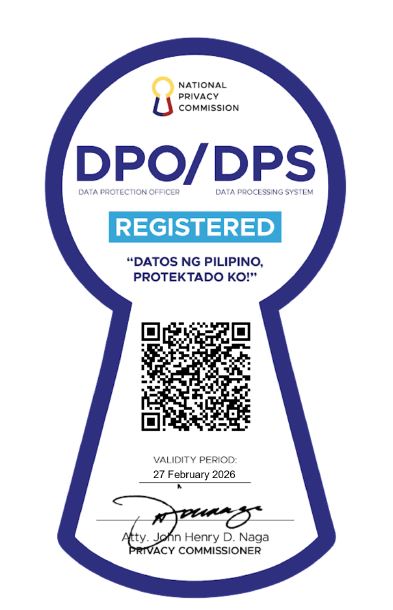DOST Takes the Lead in Molding a Technology-Driven PH through Research and Development Programs
By: Zalda R. Gayahan
‘Transformative’ is how the Department of Science and Technology Secretary, Dr. Renato U. Solidum, Jr., describes the DOST’s lineup of research and development programs during the ELEV8Ph event held at the Dusit Thani Manila on February 5, 2025.
‘With collaboration as our cornerstone, let us embark on decisive steps toward a progressive nation we all yearn for,’ said Secretary Solidum as he encouraged the audience, composed of industry players, government officials, foreign partners, researchers from universities and private sector, and media, to take active involvement in the big-ticket R&D programs of the Department.

DOST Secretary Renato U. Solidum, Jr. (center), joined by DOST's research and development institute heads, during the ELEV8Ph on February 5, 2025, at Dusit Thani Hotel Manila.
This transformation, according to Sec. Solidum may be a long, and challenging journey,’ but he puts his faith in everyone’s collective vision, hard work, knowledge, and skills in making it a reality.
As a strategy for the pursuit of a more technology-driven nation, DOST launched its eight R&D programs to advance the following:
- AI virtual hubs
- Quantum technology
- Geospatial analysis
- Industry 4.0
- ircular economy
- Smart agriculture
- Smart technologies
- Biologic in pharmaceuticals
Leading the Industry 4.0 Program is the DOST-Metals Industry Research and Development Center. Executive Director Robert O. Dizon presented the Connected and Unified Autonomous Technologies with Automation and Robotics: A Showcase of Industry 4.0 Capabilities in Various Industries (CUATRO) Program, a three-year R&D program, to be launched this year.
Director Dizon (second from left) joins the panel discussion and responds to questions asked by DOST Secretary Solidum
One of the major outputs of the CUATRO Program is the establishment of the Smart Manufacturing Hub in the DOST-MIRDC compound in Bicutan in year 1.
MSMEs make up 99.63% of the total businesses in the Philippines. Of these, 140,180 firms belong to the manufacturing industry . According to the Digital Transformation: The Way Forward, Industry 4.0 Readiness of Philippine MSMEs, a White Paper written as an output of a survey conducted by the DOST-MIRDC’s Advanced Mechatronics, Robotics, and Industrial Automation Laboratory (AMERIAL) from 2019-2022, 90% of MSMEs have a basic level of shop floor automation. They use electricity-powered, locally fabricated equipment. The production is highly labor-intensive. These companies can only target to serve a very limited market because the output is relatively low.
No automation technologies are employed in 8% of the MSMEs, while only 2% showed advanced production processes – repetitive processes are automated, and very minimal human intervention is required.
When asked why most businesses still use a basic level or even no automation, MSMEs identified the following as their main challenges in upgrading technology: lack of available machinery, slow deployment of R&D outputs, no access to working prototypes, no R&D and innovation initiatives, high investment cost and risk of losses, manual or semi-automatic machines are suitable for their small-scale production, no capital for equipment upgrade, limited market reach, lack of skilled workers, and insufficient training and support.
CUATRO’s Smart Manufacturing Hub envisions addressing these challenges.
This hub will house a portfolio of technologies that will enable MSMEs to upskill and reskill manufacturing companies’ employees to make them more productive and competitive in both the local and foreign markets. The hub will be a facility where MSMEs will gain enhanced skills in additive manufacturing, autonomous robots, augmented reality, internet of things, cybersecurity, system integration, simulation, big data, and cloud computing.
The Smart Manufacturing Hub that will be established at DOST-MIRDC in Bicutan, Taguig City.
Not only that. There will be opportunities for networking and collaboration among clients of the hub. R&D, consultancy and skills sharing, and supplier-client engagement are services that will also be available at the hub.
Aside from the establishment of the hub in year 1, there will also be pilot demonstrations to be conducted in Luzon, Visayas, and Mindanao until Year 3.
The CUATRO Program, through the smart manufacturing hub and the pilot demonstrations in every region across the country, will be a very significant contributor to the transformation envisioned by DOST Sec. Solidum.
‘Industry 4.0 has already changed industries worldwide,’ shared Director Dizon. ‘We have to act now, or else we will be left behind,’ he said as he posed the challenge to all stakeholders.
As he introduced the CUATRO Program, he encouraged all participants to embrace Industry 4.0 and ‘take advantage of all opportunities in store for us in our journey toward digital transformation.’
























